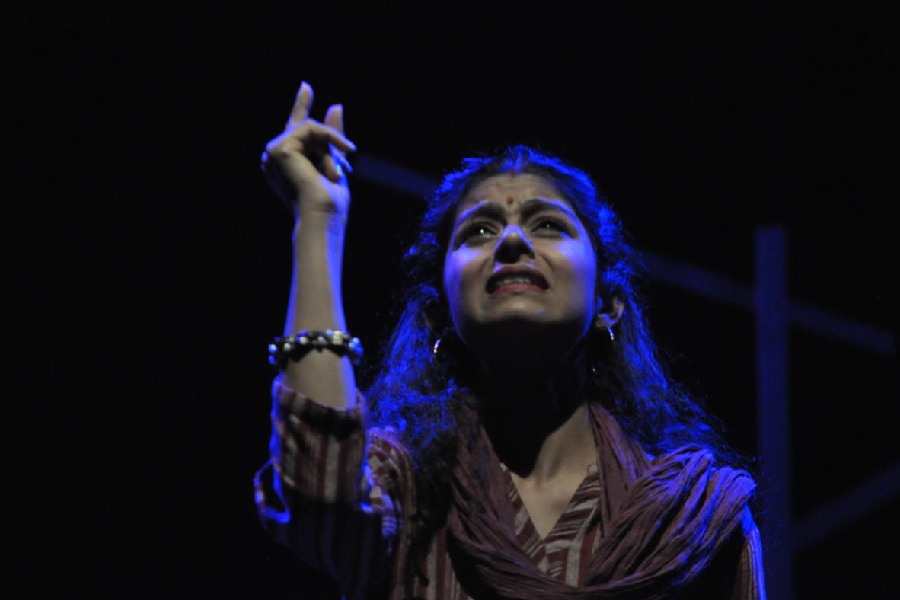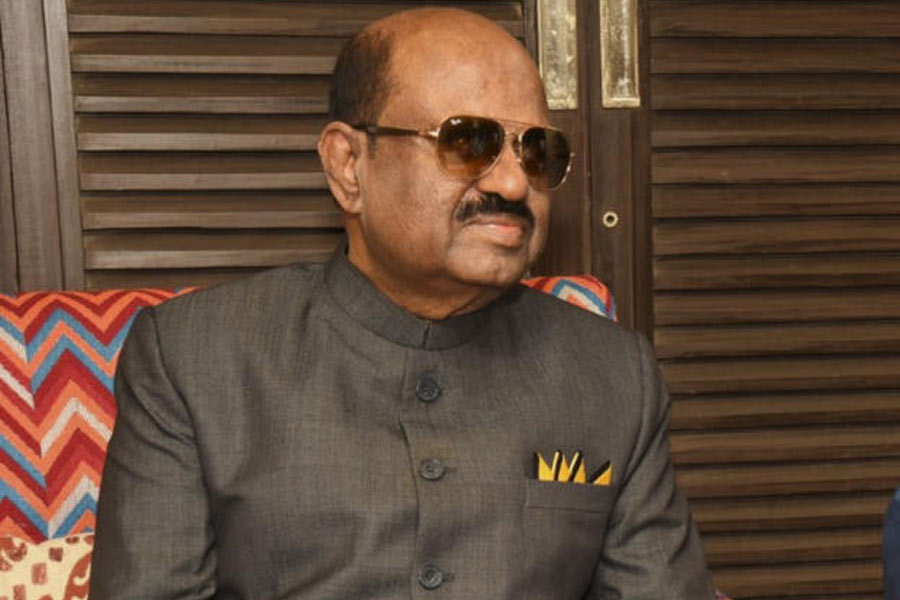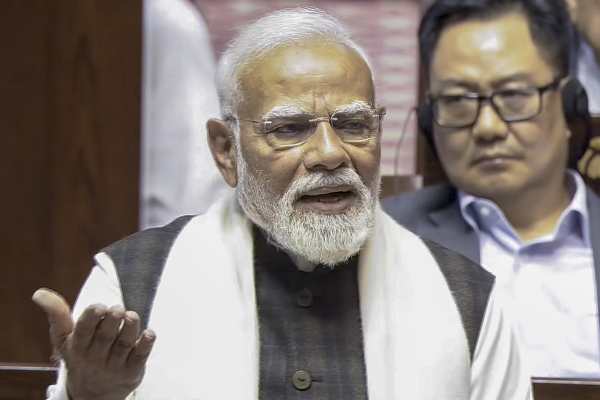Getting youngsters interested is the biggest challenge that Hindi theatre faces in Calcutta. Little Thespian thus decided to slot all the shows of its 12th National Theatre Festival (Gyan Manch, March 18-23) in the afternoon so that college-goers could attend. The ploy, arranged in association with prominent colleges, worked, ensuring a near-packed house, not to mention youthful exuberance.
This reviewer could not catch all the shows (including Delhi-based Flying Feathers Art Association’s Vyaktigat and Gwalior-based Parivartan Samooh’s Ae Ladki), but it was heartening to see People’s Theatre Group, Delhi, premiere its latest work, Oedipus Samvad. Directed by Niloy Roy, this Hindi reworking of Sophocles’s timeless play foregrounds the existential predicament of Oedipus (Naveen Chhabra) and Jocasta (Aparna Singh), with old Tiresius (Roy) looking menacing in the background. Roy avoids the trappings of period drama, keeps the costumes minimal, instals straw effigies on the stage, and puts ritual elements to good use. The young chorus, however, lacked finesse, and the overall impact missed the tragic intensity.
The veteran director, Mushtaq Kak, returned to Calcutta with Lamhon Ki Mulaqat (picture) by Vemedh Rangmanch, Jammu, and one wishes the rendezvous continues. Uma Jhunjhunwala has adapted two Krishan Chander short stories for Kak. Set in contemporary Kashmir, both plays use simple story-telling methods, such as the narrator (Kapil Pal) chipping in from time to time, engaging both the audience and the characters in conversation, to celebrate unrequited love movingly. While the first piece explored love without languishment against a vintage backdrop of Srinagar, the second worked on hallucination to make love complete. Komal Munshi’s delicate expressions and Enab Khizra’s impassionate outbursts left a lasting appeal. If minimalism is the mainstay of post-pandemic theatre, Lamhon Ki Mulaqat’s short and straight-from-the-heart approach is worth emulating.
As the festival matures over time, Little Thespian may consider better curation. The inaugural play, Dujo Kabir, by Vivechna Rangmandal, Jabalpur, did not speak highly of the selection criterion.










